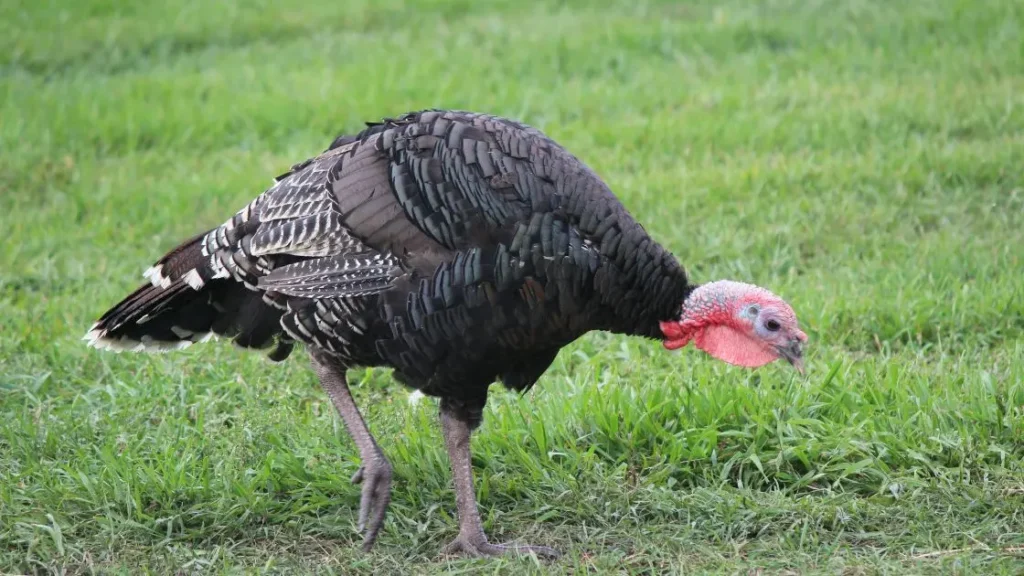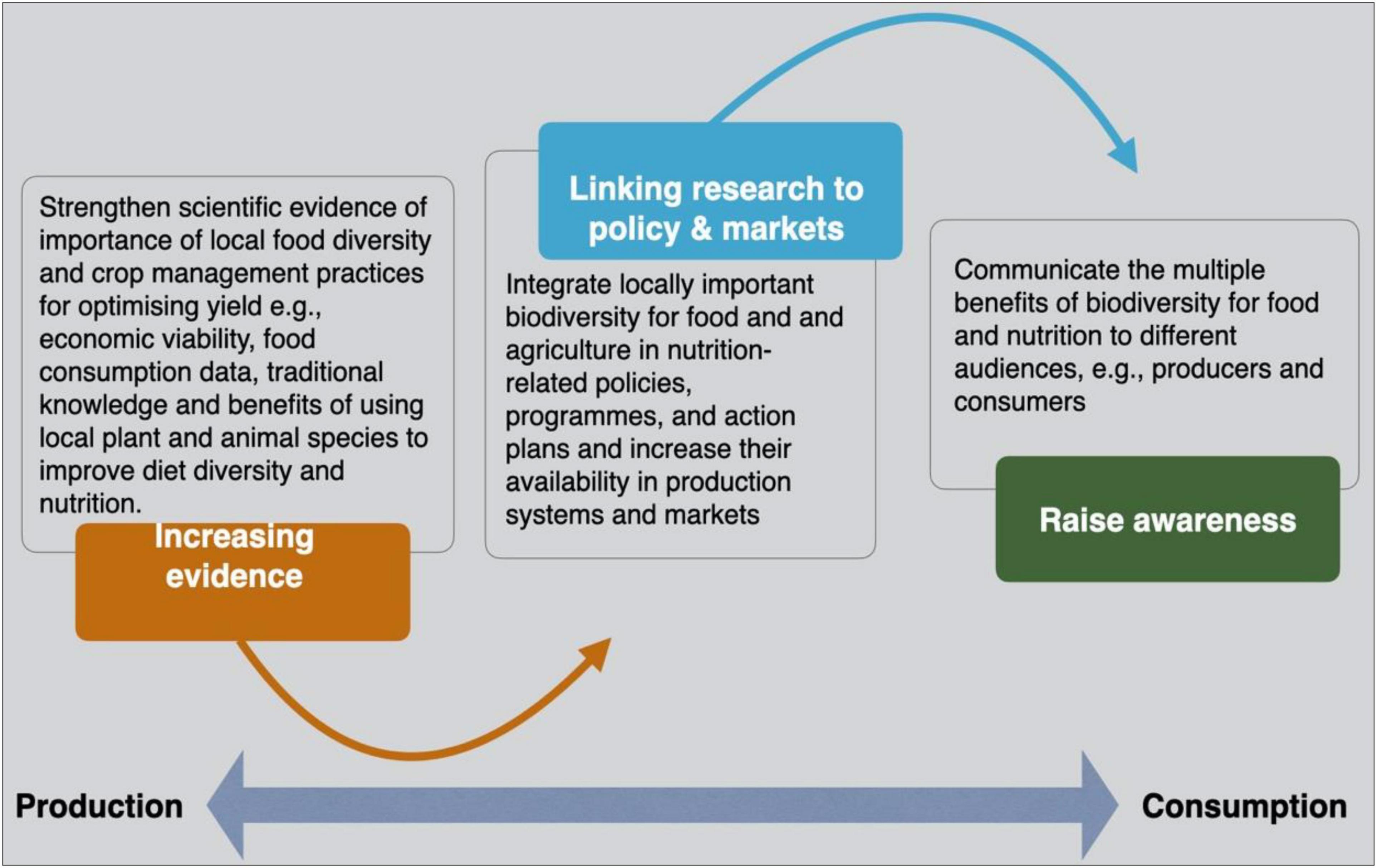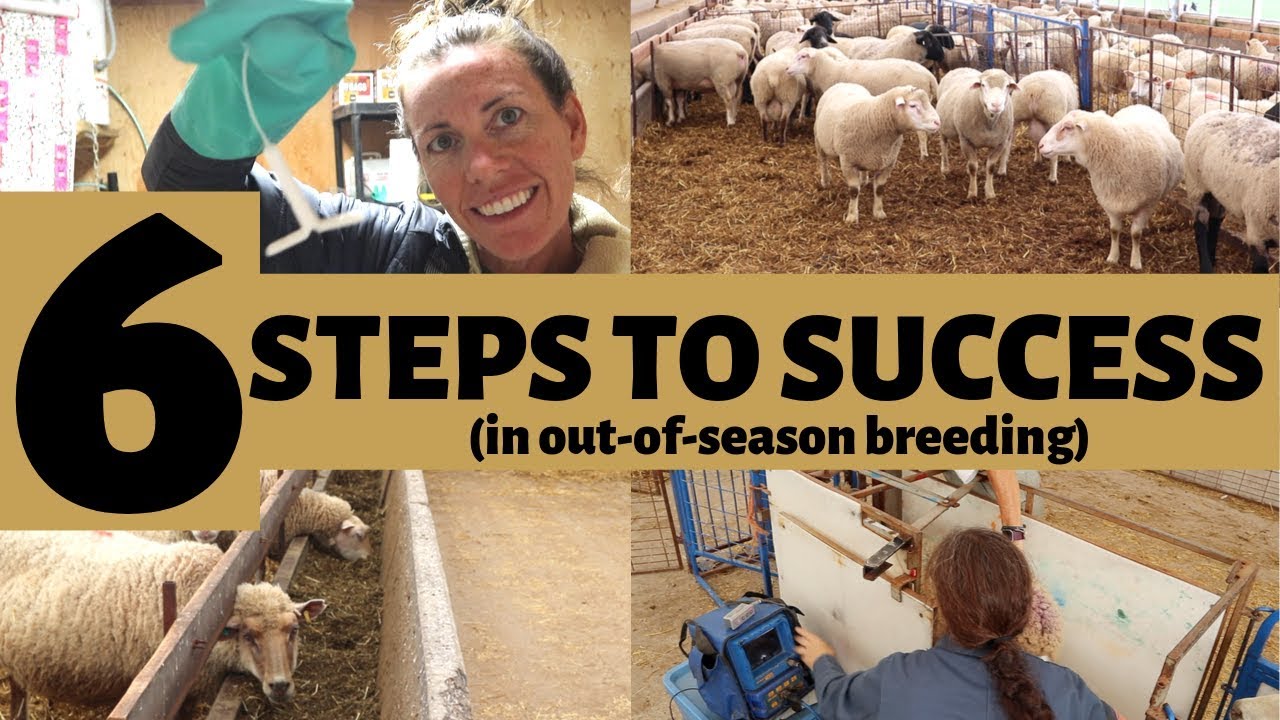The 13 best animals for food are chicken, beef cattle, goats, pigs, sheep, rabbits, ducks, turkeys, quail, bison, elk, deer, and ostrich. If you’re thinking of raising animals for food, there are several options to consider.
Some animals are easier to raise than others, and the type of animal you choose will depend on your location, resources, and personal preferences. We’ll discuss the 13 best animals for food, including chickens, beef cattle, goats, pigs, sheep, rabbits, ducks, turkeys, quail, bison, elk, deer, and ostrich.
We’ll take a closer look at each animal and discuss their pros and cons to help you make an informed decision. Keep reading to learn more about the best animals for food production.
Goat
Goats are one of the most popular animals for raising as food. They are relatively easy to care for and provide a good yield of milk, meat, and fiber. With proper management, goats can be a sustainable source of nutrition and income.

When it comes to raising animals for food, goats are undoubtedly a top choice for farmers and homesteaders. Not only are they excellent milk producers, but they also provide high-quality meat for consumption. Let’s explore the benefits of raising goats for food and the different breeds suitable for meat production.
Benefits Of Raising Goats For Food
Goats are a great addition to a homestead for many reasons:
- Goat meat is low in fat and cholesterol, making it a healthier choice than many other meats.
- Unlike cattle, goats require less space to graze, making them suitable for small-scale farmers and homesteaders.
- They are hardy and can survive in harsh environments, making them ideal for areas with adverse weather conditions.
- Goats are easy to care for and require minimal feeding and medications compared to other domestic animals.
- Goats breed all year round, enabling farmers to raise them and maximize their profits throughout the year.
Different Goat Breeds For Meat Production
Many different breeds of goats are suitable for meat production. Farmers and homesteaders must choose the right breed according to their location and production objectives. Below are some popular goat breeds for meat production:
| Goat Breed | Appearance | Meat Characteristics |
|---|---|---|
| Boer | Reddish-brown with white markings | High meat-to-bone ratio with a distinctive flavor |
| Kiko | Mostly white or cream with black markings | Low-fat content with mild-tasting meat |
| Savanna | Pure white or light cream | Lean meat with a mild flavor |
| Tennessee Fainting | Various colors with white spots | Rich and meaty flavor with tender meat |
Goats are undoubtedly a top choice for animal husbandry, especially for food production. Farmers and homesteaders can take advantage of the numerous benefits of raising goats, including their high-quality meat, low-fat milk, and adaptability to different environments. By selecting appropriate breeds and providing proper care and nutrition, farmers can maximize their profits and contribute to a sustainable food system.
Chicken
Chicken is one of the most popular and versatile poultry options for meat production. It is easy to raise and can be found in nearly every part of the world. Not to mention, it is also one of the most affordable meat options for consumers.

Different Types Of Chickens Used For Meat Production
There are many different types of chickens available to raise for meat production. Some of the most commonly raised chicken breeds for meat include:
| Chicken Breed | Weight Range | Characteristics |
|---|---|---|
| Cornish Cross | 4-6 lbs | Rapid growth rate, tender meat |
| White Plymouth Rock | 6-7 lbs | Larger size, good meat quality |
| Jersey Giant | 10-15 lbs | Largest chicken breed, takes longer to mature |
Benefits Of Raising Chickens For Food
What are the benefits of raising chickens for food, you may ask? There are many!
- Chickens are a great source of protein, making them a crucial part of a healthy diet.
- Raising chickens for meat allows you to have control over what your chickens are fed, which can result in healthier and more flavorful meat.
- Chickens are relatively easy to care for and require minimal space compared to other livestock options.
- Chickens can provide not only meat but also eggs, making them a versatile addition to any homestead or small farm.
If you are considering raising animals for food, chickens are a great option to start with. They are low-maintenance, affordable, and can provide you with a sustainable source of protein for years to come.
Rabbit
Rabbit is a popular animal to raise for food due to their small size, fast growth rate, and low cost of maintenance. They are also a great source of lean protein and can be cooked in various ways to create delicious meals.

Rabbit is a popular animal to raise for food, and it’s no wonder why. These furry creatures are easy to manage and don’t require a lot of space. They also reproduce quickly, which means you can have a steady supply of meat throughout the year. In this section, we’ll take a closer look at the different rabbit breeds for meat production, as well as the benefits and drawbacks of raising rabbits for food.
Different Rabbit Breeds For Meat Production
There are many different breeds of rabbits, but not all of them are suitable for meat production. If you’re looking to raise rabbits for food, here are some of the best breeds to consider:
- New Zealand
- Californian
- Silver Fox
- Rex
- Chinchilla
These breeds are known for their large size, fast growth rate, and high meat-to-bone ratio. They’re also well-adapted to living in cages and can thrive on a diet of commercial rabbit feed and hay.
Benefits And Drawbacks Of Raising Rabbits For Food
Like any type of livestock, there are both benefits and drawbacks to raising rabbits for food. Here are some of the main ones to consider:
Benefits:
- Rabbits are easy to care for and don’t require a lot of space.
- They reproduce quickly, with litters of 6-8 kits every 30 days or so.
- Rabbit meat is lean, low in cholesterol, and high in protein.
- Their manure is rich in nitrogen and can be used as fertilizer for gardens.
Drawbacks:
- Rabbits are susceptible to several health issues, including respiratory infections and digestive problems.
- They can be difficult to process for meat, especially if you’re not experienced.
- Some people find the taste of rabbit meat to be too gamey or tough.
- If you’re only raising a few rabbits, the cost of feed and equipment may outweigh the benefits.
Overall, rabbits can be a great animal to raise for food if you have the space and are willing to invest the time and effort. With the right breed and management practices, you can have a steady supply of delicious, lean meat right in your backyard.
Pig
Raising pigs for food is a popular choice due to their ability to convert food into meat quickly. They are also highly versatile, with nearly every part of the pig being edible or useful. With proper care and feeding, pigs can provide a reliable source of meat for both personal consumption and commercial sale.

Pigs, also known as hogs, are a popular choice for meat production. These intelligent animals have been domesticated for thousands of years and have played an important role in human history. In this article, we will be discussing the various benefits of raising pigs for food, as well as different pig breeds that are ideal for meat production.
Benefits Of Raising Pigs For Food
Raising pigs for food has several benefits. Here are a few:
- High-Quality Meat: Pig meat, also known as pork, is rich in protein, vitamins, and minerals, making it a healthy and nutritious meat option. It is also versatile and can be cooked in a variety of ways.
- Economical: Pigs are highly efficient at converting feed into meat, making them a cost-effective option for meat production. Moreover, they can thrive on a variety of feed sources, including kitchen scraps and leftovers.
- Easy to Raise: Pigs are relatively easy to raise, making them an ideal choice for small-scale farmers or homesteaders. They require minimal space and can adapt to a wide range of climates and environments. They are also social animals that thrive in groups, making them easy to manage.
- Profitable: Pigs grow quickly and can reach market weight in as little as six months. This means that farmers can turn a profit relatively quickly.
Different Pig Breeds For Meat Production
There are several pig breeds that are ideal for meat production. Here are a few:
| Breed | Description | Benefits |
|---|---|---|
| Berkshire | Black with white points; known for its tender and flavorful meat | High-quality, highly marbled meat |
| Duroc | Red; known for its excellent muscle quality and fast growth rate | Excellent meat quality and fast growth rate |
| Hampshire | Black with a white belt; known for its lean meat and good muscle quality | Lean meat with excellent muscle quality |
| Yorkshire | White; known for its excellent meat quality and mothering ability | Excellent meat quality and highly prolific |
In conclusion, raising pigs for food can be a highly rewarding experience for small-scale farmers or homesteaders. With their high-quality meat, efficiency, and ease of raising, pigs are an ideal choice for meat production. Moreover, with a variety of pig breeds available, farmers can choose the breed that best suits their needs and environment.
Duck
Ducks a great animals to raise for food, thanks to their eggs, meat, and feathers. They are easy to breed and have an excellent feed-to-meat ratio. Additionally, they are hardy, resist diseases, and have high adaptability to different climatic conditions.

Duck, a bird that is often treated as a delicacy, can be raised for both its meat and eggs. In terms of meat production, ducks provide tasty, lean meat that can be used in a variety of dishes. In addition, ducks are relatively easy to raise and maintain. Here are the different types of ducks used for meat production, along with the benefits of raising ducks for food.
Different Types Of Ducks Used For Meat Production
There are several types of ducks that can be raised for meat production, including:
| Type of Duck | Characteristics |
|---|---|
| Pekin | Most commonly raised for meat in the United States. White feathers and yellow skin. |
| Muscovy | Large and meaty with a distinct flavor. Reddish-black plumage with pink or red wattles on the face. |
| Rouen | Similar to Pekin but with darker, mottled feathers. |
Benefits Of Raising Ducks For Food
Raising ducks for food comes with several benefits, including:
- Ducks are efficient converters of feed to meat, requiring less feed per pound of meat than other livestock.
- Ducks are easy to raise and can be kept in small spaces.
- Ducks produce lean meat that is tasty and versatile.
- Ducks are hardy and can handle a variety of climates and conditions.
In conclusion, if you’re looking for a new animal to raise for food, ducks are a great option. Not only do they provide delicious meat, but they are also easy to raise and maintain. Whether you choose Pekin, Muscovy, Rouen, or another type of duck, you’re sure to enjoy the benefits of raising these feathered friends.
Turkey
Turkey is home to a variety of animals that can be raised for food. Some of the best animals to raise for food in Turkey include chickens, turkeys, ducks, geese, quails, goats, sheep, cattle, bees, rabbits, fish, and snails. These animals can provide a sustainable source of protein and other nutrients for local communities.

Turkey is a popular bird that is widely raised for its delicious meat. It has been a staple in American cuisine for centuries and is known for its lean protein. Many people raise turkeys for their meat because they are easy to care for and require minimal effort. In this section, we’ll cover different turkey breeds for meat production, and also discuss the benefits of raising turkeys for food.
Different Turkey Breeds For Meat Production
There are different types of turkey breeds available for meat production. The most common breeds are Broad Breasted Bronze, Broad Breasted White, and the Bourbon Red. These breeds are known for their quick growth and large size, making them perfect for meat production. They are easy to raise and require minimal space, making them ideal for small farms or backyard setups.
Benefits Of Raising Turkeys For Food
Raising turkeys for food has several benefits. Firstly, they are a great source of lean protein, making them an excellent addition to any healthy diet. They also require minimal care and attention, making them a low-maintenance option for those who want to raise their own food. Additionally, turkeys are hardy birds that can withstand harsh weather conditions, making them a suitable choice for any climate.
Turkeys are also beneficial to the environment. They help to control insect populations, which can reduce the need for pesticides and other harmful chemicals. Furthermore, their manure is a natural fertilizer that can be used to improve the soil quality of your garden or farm. Overall, raising turkeys for food is a sustainable and eco-friendly option that promotes self-sufficiency.
In conclusion, raising turkeys for food is a great way to provide healthy, protein-rich meat for your family while also benefiting the environment. With their quick growth and minimal care requirements, turkeys are an ideal choice for any small farm or backyard setup. Discover the joy of raising turkeys for food and enjoy the many benefits that come with it.
Fish
Fish are a popular animal to raise for food due to their high protein and omega-3 content. Some of the best fish to raise for food include tilapia, catfish, and trout.
Fish is a great option for those looking to raise animals for food production. Not only do they provide a sustainable source of protein, but they can also be raised in small spaces, making them a great option for those with limited land. Additionally, fish are relatively low maintenance, making them a great option for those who want to raise animals but have little experience doing so.
Different Fish Species For Food Production
There are a variety of fish species that are great options for food production. Depending on your location and preferences, some popular options include:
| Fish Species | Benefits |
|---|---|
| Tilapia | Grow quickly and can be raised in small spaces; mild-tasting |
| Trout | Can be raised in freshwater or saltwater; high in omega-3 fatty acids |
| Salmon | High in protein and omega-3 fatty acids; versatile for cooking |
Benefits Of Raising Fish For Food
Raising fish for food production offers a variety of benefits. Here are just a few:
- High in protein: Fish is a great source of protein, making it a healthy addition to any diet.
- Low maintenance: Unlike other animals that require a lot of care, fish are relatively low maintenance. As long as you provide them with clean water and feed, they will thrive.
- Sustainable: Fish are a sustainable source of protein and can even be raised in urban areas. Additionally, aquaponics systems that use fish waste to fertilize plants are becoming increasingly popular.
- Versatile: Fish can be prepared in a variety of ways, making them a versatile ingredient for any meal.
Overall, fish is a great option for those looking to raise animals for food production. With a variety of species to choose from and a range of benefits, raising fish is a sustainable and healthy choice.
Sheep
Sheep are one of the 13 best animals to raise for food. They are known for their wool and delicious meat. They are relatively low-maintenance and can adapt to different climates.
Different Sheep Breeds For Meat Production
When it comes to raising sheep for food, it is important to choose the right breed to achieve the desired meat quality and production. There are different breeds of sheep to consider depending on your preference and location. Generally, the most popular breeds of sheep for meat production include Hampshire, Suffolk, Dorset, and Texel. Hampshire is known for its lean meat, while Suffolk is praised for its high-quality meat with a rich flavor. Dorset and Texel, on the other hand, are valued for their high yields of meat.
Benefits Of Raising Sheep For Food
There are various reasons why raising sheep for food can be beneficial. One advantage of sheep production is that sheep can graze on pasture and forage, reducing the cost of feeding compared to other livestock. Another benefit is that sheep meat is a lean, healthy source of protein that is low in saturated fat, making it an ideal choice for health-conscious people. In addition, raising sheep can also provide wool, milk, and other by-products that can be sold or used for personal consumption.
Raising sheep for food can be a profitable and sustainable venture for farmers and homesteaders. By carefully selecting the right breed and providing proper care and management, sheep production can result in high-quality meat and other valuable by-products. Whether you are looking to start a small-scale operation or a large commercial enterprise, raising sheep for food is definitely worth considering.

Credit: www.frontiersin.org
Conclusion
Ultimately, choosing the best animals to raise for food depends on your preferences, resources, and goals. Whether you’re looking for a steady source of protein, a sustainable way to feed your family, or a profitable business venture – there’s an animal on this list for you.
From chickens to rabbits to cattle, these animals offer a variety of benefits and challenges. But with the right knowledge and care, you can successfully raise them and reap the rewards. So go forth and start your homesteading journey – one animal at a time.








